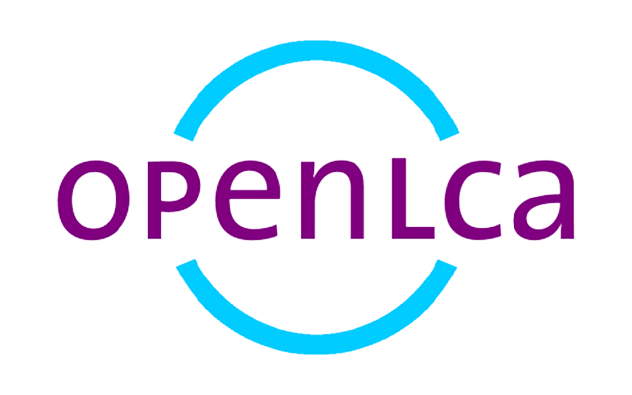Idemat 2023
Idemat 2023 can now be found for download in openLCA Nexus: https://nexus.openlca.org/database/IDEMAT
The yearly update includes:
- new version of the Idemat database for the year 2023 with updated eco-costs 2023
- ecoinvent 3.8 cut-off with updated eco-costs 2023
This is the summary of the major items that have been changed:
- paper and board updated,
- printing inks added,
- PEI and PB-1 added in plastics
- EVOH updated,
- CED updated for all plastics,
- LNG updated,
- NMC 811 batteries updated
- eco-costs 2022 changed in eco-costs 2023 (for details see https://www.ecocostsvalue.com/eco-costs/ )
Data provider information
Idemat 2023 in openLCA
IDEMAT (short for Industrial Design & Engineering MATerials database) is a compilation of LCI data of the Sustainable Impact Metrics Foundation, SIMF, a non-profit spinn-off of the Delft University of Technology. It is designed for the need of designers, engineers and architects in the manufacturing and building industry.
The dataset was originally developed to educate approx 500 students each year on how to apply LCA in the fuzzy front end of Industrial Design Engineering. The aim was to achieve (1) a better accuracy than Ecoinvent for the main emissions (CO2, SO2, NO2, PM2.5, etc.) in relation to electricity and transport, and (2) extra data on end-of-life credits for recycling and combustion with heat recovery, to give students a better understanding of material and system choices in regard with circular design (3) provide extra data on plastics, alloys, and wood species (that are missing in Ecoinvent).
Data are based on peer-reviewed scientific papers (472), plus additional LCI’s made by Delft University of Technology (652), and Plastics Europe (40). The remaining background processes (74) are from Probas (25), USLCI (20), ELCD (16), CESedupack (7), Univ Chalmers (4) and EI (2). SIMF has the aim is to replace these remaining background LCIs by processes from scientific literature as soon as it becomes available in peer reviewd papers, since many of these background databases appear to be highly inaccurate (outdated, or based on generic statistics, the so called InputOutput tables, rather than process flows).
Use Advice
IDEMAT can be used in combination with the following openLCA LCIA methods: Eco-costs, ReCiPe, CED, CML,TRACI and EF 3.
The Eco-costs method, that is available within the packages, is a monetized single indicator system which is prevention based, in compliance with ISO 14008 (“Monetary valuation of environmental impacts and related environmental aspects”). For a detailed system description see www.ecocostsvalue.com.
IDEMAT data are based on:
- “cut-off” at the end-of-life (according to EN15804, and similar to Ecoinvent ‘allocation cut-off by classification’)
- 2% cut-off for the system boundary
- application of (carefully selected) case studies, rather than statistical data
- the LCIs have the ‘unit’ approach, only the ‘remaining background processes’ have the ‘system’ approach (the disadvantage of the system approach is that LCIs become rapidly outdated, because of the fast changing electricity mix)
- electricity data are based on measured emissions (for Europe the E-PRTR data, for the USA the eGRID data), being fundamentally different from most other LCI databases, for further explanation of this issue see https://www.ecocostsvalue.com/lca/electricity-in-lca/
Electricity data on 373 countries and regions are available at https://www.ecocostsvalue.com/data/ - end-of-life credits for combustion with heat recovery (according to ISO 14044 section 4.3.3.1) as well as end-of-life credits for upcycling of metals and plastics (section D in EN15804) are provided in an extra set of generic LCIs, to facilitate LCA pratitioners with practical data that are readily available for C2C calculations (in most cases, it is quite laborious to find or calculate the data on combustion energy and recycling).
- the dataset as such does not apply allocation: unit processes have been divided in two sub-processes where applicable
- for easy understanding and transparency two sets of ‘original, not normalised, LCIs’ give the direct data from literature
- for plastics and transport fuels, the ‘embodied fossil fuels’ are provided in the LCIs (‘oil & gas in materials’ and ‘oil & gas in transport fuels’) to cope with EN15804 requirements, and to cope with double counting issues in ISO 14044 in the eco-costs system (double counting of fossil fuels in ‘fossil resource use’ and CO2 in ‘climate change’)
- the extra dataset ‘ecoinvent Eco-costs corrections’ is provided to add to the Ecoinvent LCIs, in order to make correct eco-costs calculations in the EI dataset (this is nescessary to cope with the double counting issue of fossil fuels and CO2 emissions, as mentioned in the previous issue i.
- the IDEMAT dataset has been developed for calculations in the eco-costs single indicator system, as well as CML, ReCiPe, CED, TRACI and EF 3. Take care with other indicator systems, since names of substances might be different.
Note that the consequense of 1) and 7) is that the further application starting from the sorted waste materials are free of the eco-burden of the previous product life. The new product life that starts with recycling of that waste has zero ecoburden, which is effectuated in the calculations with a zero mass flow (rather than creation a long list of dummy materials for ‘urban mining’).
Further information
https://www.ecocostsvalue.com/
Note: For monetization, the eco-costs method is recommended as the most used monetized single indicator system for LCA in science.
How to obtain Idemat 2022RevA and ecoinvent with eco-costs for openLCA?
Visit our market place for databases: openLCA Nexus: https://nexus.openlca.org/database/IDEMAT
